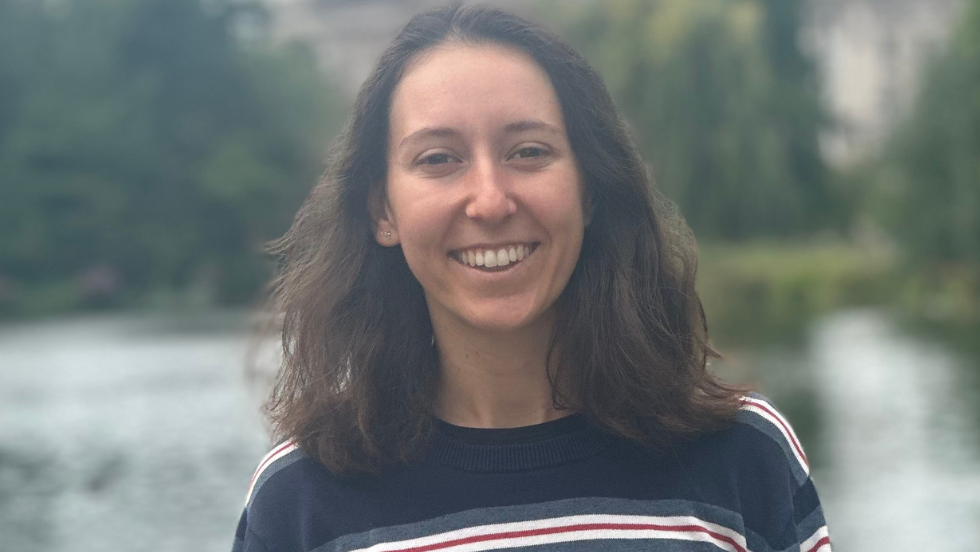Name: Skye Brodsky
Hometown: New York, NY
Program: Master of Arts in Teaching
Education: Brown University
Current Position: Middle School ELA Teacher
Looking back, what was the most memorable or impactful part of your experience in the MAT program?
The most memorable and impactful part of my experience in the MAT program was the people. The professors, like Professor Snyder and Professor Silva Pimentel, taught me practices and offered advice that I still use daily in my classroom. Of course, my mentor teacher, Alysia D’Urso taught me so much and helped me build confidence in my teaching as well as helping me draw boundaries to ensure I stay balanced in my career. Watching Alysia teach and receiving her feedback made a giant impact on who I am as a teacher. And, I think about the students who I taught with Alysia at Paul Cuffee High School constantly. They were patient with me as I was learning, and they made me feel confident that I wanted to continue with the job. I do believe that that group of 10th graders was uniquely special (they just graduated high school recently!), and I will always be grateful to have had the opportunity to teach them as my first group!
Additionally, my classmates will always remain one of the most memorable parts of the program. I was lucky to do my student teaching at Paul Cuffee High School with four other MATs, and our daily carpool rides became a place to vent, debrief, and share teaching strategies. The support system that we created helped me succeed during the program, and the teachers from my program who I stay in touch with continue to be resources for me when I need to bounce my ideas off of someone or just talk about teaching with people who will understand where I’m coming from.
Can you share a specific moment, project, or lesson from your career so far that has been a highlight?
This year, after teaching Harper Lee’s To Kill a Mockingbird with my eighth-grade classes, I hosted a mock trial in each class. The question was about whether Boo Radley’s murder at the end of the novel should be classified as self-defense. My students have since told me that the day of our trial was their favorite day of the year in ELA. We used an auditorium space to make it feel more special, and the students assumed the roles of prosecution and defense lawyers, as well as a variety of characters from the book. The project was definitely one that I plan to recreate as I move forward in my career.
What have you been doing professionally since graduating, and how has your career evolved over time?
After graduating, I moved to Washington, D.C. with my classmate from the MAT program and another education major from Brown (all three of us work as teachers in schools around D.C.). I have worked for the two years since graduation at a D.C. public school called Cardozo Education Campus, which is located in the Columbia Heights neighborhood of D.C., and serves students from 6-12th grades. I have taught classes in 6th, 7th, and 8th grades, but have mostly focused on 7th and 8th grade ELA. Next year, I will be moving to a different school in DCPS, called Eliot Hine, which is only a middle school, and I will be teaching 7th grade ELA.
Which skills or lessons from the MAT program have been most valuable to you in your career, and how have you applied them?
I frequently use practices that I learned during the MAT program in my classroom. I use Professor Snyder’s Word Ladders to teach specific content vocabulary, I use Alysia’s “Think Like an Actor” activity when I teach A Raisin in the Sun to get my kids in the acting spirit, and I use the differentiation and scaffolding skills to help my ML students and students with IEPs gain access to the classroom. I think in general the ability to think through a lesson has been a large takeaway from me. Additionally, many of my professors and my mentor emphasized keeping a healthy work-life balance in order to avoid burnout.
What changes have you seen in the field of education since you graduated, and how do you think the MAT program prepared you to adapt?
A big change has been the increasing use of AI. I have noticed that when my students face a roadblock, their instinct is to ask ChatGPT to help them figure out a solution, instead of problem solving on their own. Trying to teach students to have the patience to think through a challenge and find a creative solution on their own is definitely an uphill battle. I do not think anyone knows how to fully adapt to this yet, especially as the technology is changing so rapidly.
What’s one piece of advice you’d give to someone considering applying to the program today?
My advice would be to focus their attention on the student teaching aspect of the program as much as possible. That part of the experience is definitely the one which will apply most heavily to their first year of teaching. With that, I think keeping a list of activities either learned from their content professor or from student teaching that are most engaging is helpful.
